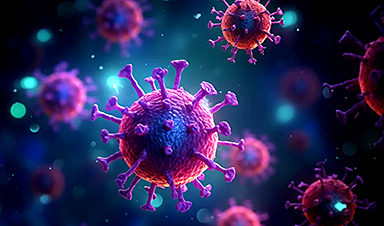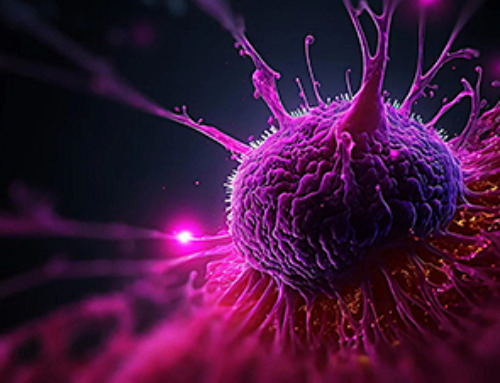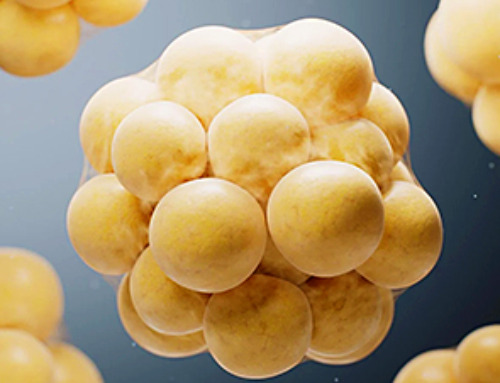A new mucosal COVID-19 vaccine poised to revolutionize the delivery process is especially beneficial for those with a fear of needles.
A next-generation COVID-19 mucosal vaccine is set to be a game-changer not only when delivering the vaccine itself, but also for people who are needle-phobic.
New Griffith University research, published in Nature Communications, has been testing the efficacy of delivering a COVID-19 vaccine via the nasal passages.
Professor Suresh Mahalingam from Griffith's Institute for Biomedicine and Glycomics has been working on this research for the past four years.
Benefits of Live-Attenuated Vaccines
"This is a live attenuated intranasal vaccine, called CDO-7N-1, designed to be administered intranasally, thereby inducing potential mucosal immunity as well as systemic immunity with just a single dose," Professor Mahalingam said.
"The vaccine induces strong memory responses in the nasal mucosa offering long-term protection for up to a year or more. It's been designed to be administered as a single dose, ideally as a booster vaccine, as a safe alternative to needles with no adverse reactions in the short or long term."

Live-attenuated vaccines offer several significant advantages over other vaccine approaches.
They induce potent and long-lived humoral and cellular immunity, often with just a single dose.
Live-attenuated vaccines comprise the entire virus thereby providing broad immunity, in contrast to a single antigen which is used in many other vaccine platforms.
Lead author Dr Xiang Liu said the vaccine provides cross-protection against all variants of concern, and has neutralising capacity against SARS-CoV-1.
"The vaccine offers potent protection against transmission, prevents reinfection and the spread of the virus, while also reducing the generation of new variants," Dr Liu said.
"Unlike the mRNA vaccine which targets only the spike protein, CDO-7N-1 induces immunity to all major SARS-CoV-2 proteins and is highly effective against all major variants to date.
"Importantly, the vaccine remains stable at 4°C for seven months, making it ideal for low- and middle-income countries."
Licensing and Future Prospects
The vaccine has been licensed to Indian Immunologicals Ltd, a major vaccine manufacturer.
Dr. K. Anand Kumar, co-author of the publication and Managing Director of Indian Immunologicals Ltd. Said: "We are a leading 'One Health' company that has developed and launched several vaccines for human and animal use in India and are currently exporting to 62 countries."
"We have completed all the necessary studies of this novel COVID-19 vaccine which offers tremendous advantages over other vaccines. We now look forward to taking the vaccine candidate to clinical trials."
Professor Lee Smith, Acting Director of the Institute for Biomedicine and Glycomics, said he was delighted with the research findings.
"These results towards developing a next-generation COVID-19 vaccine are truly exciting," Professor Smith said. "Our researchers are dedicated to providing innovative and, crucially, more accessible solutions to combat this high-impact disease."
Reference: "A single-dose intranasal live-attenuated codon deoptimized vaccine provides broad protection against SARS-CoV-2 and its variants" by Xiang Liu, Wern Hann Ng, Eva Zusinaite, Joseph Freitas, Adam Taylor, Venugopal Yerragunta, Shukra Madhaha Aavula, Sambaiah Gorriparthi, Santhakumar Ponsekaran, Rama Lakshmi Bonda, Priyanka Mani, Sridevi V. Nimmagadda, Sainan Wang, Laura Sandra Lello, Ali Zaid, Ujjwal Dua, Sharon A. Taft-Benz, Elizabeth Anderson, Victoria K. Baxter, Sanjay Sarkar, Zheng L. Ling, Thomas M. Ashhurst, Samuel M. S. Cheng, Priyabrata Pattnaik, Anand Kumar Kanakasapapathy, Ralph S. Baric, Felicity J. Burt, Malik Peiris, Mark T. Heise, Nicholas J. C. King, Andres Merits, Rajendra Lingala and Suresh Mahalingam, 26 August 2024, Nature Communications.
DOI: 10.1038/s41467-024-51535-y
News
NanoMedical Brain/Cloud Interface – Explorations and Implications. A new book from Frank Boehm
New book from Frank Boehm, NanoappsMedical Inc Founder: This book explores the future hypothetical possibility that the cerebral cortex of the human brain might be seamlessly, safely, and securely connected with the Cloud via [...]
Deadly Pancreatic Cancer Found To “Wire Itself” Into the Body’s Nerves
A newly discovered link between pancreatic cancer and neural signaling reveals a promising drug target that slows tumor growth by blocking glutamate uptake. Pancreatic cancer is among the most deadly cancers, and scientists are [...]
This Simple Brain Exercise May Protect Against Dementia for 20 Years
A long-running study following thousands of older adults suggests that a relatively brief period of targeted brain training may have effects that last decades. Starting in the late 1990s, close to 3,000 older adults [...]
Scientists Crack a 50-Year Tissue Mystery With Major Cancer Implications
Researchers have resolved a 50-year-old scientific mystery by identifying the molecular mechanism that allows tissues to regenerate after severe damage. The discovery could help guide future treatments aimed at reducing the risk of cancer [...]
This New Blood Test Can Detect Cancer Before Tumors Appear
A new CRISPR-powered light sensor can detect the faintest whispers of cancer in a single drop of blood. Scientists have created an advanced light-based sensor capable of identifying extremely small amounts of cancer biomarkers [...]
Blindness Breakthrough? This Snail Regrows Eyes in 30 Days
A snail that regrows its eyes may hold the genetic clues to restoring human sight. Human eyes are intricate organs that cannot regrow once damaged. Surprisingly, they share key structural features with the eyes [...]
This Is Why the Same Virus Hits People So Differently
Scientists have mapped how genetics and life experiences leave lasting epigenetic marks on immune cells. The discovery helps explain why people respond so differently to the same infections and could lead to more personalized [...]
Rejuvenating neurons restores learning and memory in mice
EPFL scientists report that briefly switching on three “reprogramming” genes in a small set of memory-trace neurons restored memory in aged mice and in mouse models of Alzheimer’s disease to level of healthy young [...]
New book from Nanoappsmedical Inc. – Global Health Care Equivalency
A new book by Frank Boehm, NanoappsMedical Inc. Founder. This groundbreaking volume explores the vision of a Global Health Care Equivalency (GHCE) system powered by artificial intelligence and quantum computing technologies, operating on secure [...]
New Molecule Blocks Deadliest Brain Cancer at Its Genetic Root
Researchers have identified a molecule that disrupts a critical gene in glioblastoma. Scientists at the UVA Comprehensive Cancer Center say they have found a small molecule that can shut down a gene tied to glioblastoma, a [...]
Scientists Finally Solve a 30-Year-Old Cancer Mystery Hidden in Rye Pollen
Nearly 30 years after rye pollen molecules were shown to slow tumor growth in animals, scientists have finally determined their exact three-dimensional structures. Nearly 30 years ago, researchers noticed something surprising in rye pollen: [...]
How lipid nanoparticles carrying vaccines release their cargo
A study from FAU has shown that lipid nanoparticles restructure their membrane significantly after being absorbed into a cell and ending up in an acidic environment. Vaccines and other medicines are often packed in [...]
New book from NanoappsMedical Inc – Molecular Manufacturing: The Future of Nanomedicine
This book explores the revolutionary potential of atomically precise manufacturing technologies to transform global healthcare, as well as practically every other sector across society. This forward-thinking volume examines how envisaged Factory@Home systems might enable the cost-effective [...]
A Virus Designed in the Lab Could Help Defeat Antibiotic Resistance
Scientists can now design bacteria-killing viruses from DNA, opening a faster path to fighting superbugs. Bacteriophages have been used as treatments for bacterial infections for more than a century. Interest in these viruses is rising [...]
Sleep Deprivation Triggers a Strange Brain Cleanup
When you don’t sleep enough, your brain may clean itself at the exact moment you need it to think. Most people recognize the sensation. After a night of inadequate sleep, staying focused becomes harder [...]
Lab-grown corticospinal neurons offer new models for ALS and spinal injuries
Researchers have developed a way to grow a highly specialized subset of brain nerve cells that are involved in motor neuron disease and damaged in spinal injuries. Their study, published today in eLife as the final [...]





















